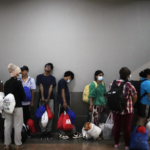Disclaimer: The views and opinions expressed by the author(s) do not represent the official position of Barbados TODAY.
By Manuel Otero
The converging crises that we are facing have pushed agriculture and food security to the top of the global
agenda. Wars, unmistakable signs of stagnation in the global economy and the increasing intensity and frequency of extreme climate events are significantly affecting the geopolitics of food.
Given the sluggish expansion of the global economy and international trade, coupled with the developed world’s persistent application of contractionary monetary policies, the outlook at the start of this year forecasts that in comparison to 2023, the economic growth rate of Latin America and the Caribbean could fall to a mere 1.5 per cent, or even less, if external shocks become more severe.
In the context of an increasingly complex world, protests by European farmers have rocked regions of the Old Continent in recent weeks, prompting the European Commission to immediately stall its introduction of a regulation to reduce pesticide limits.
The European Union (EU) has adopted the Common Agricultural Policy (CAP) as a mechanism to stimulate the sector and its objectives and programmes are revised every five years. CAP 2023-2027 has incorporated various sustainability targets—such as the Farm to Fork programme, which is part of the Green Pact—and has allocated 386.6 billion Euros to guarantee its execution. Approximately 72 per cent of these resources have been earmarked for direct payments to farmers.
Disgruntled European farmers have been demanding greater assistance through subsidies and other support measures and have also raised concerns about the risk of an avalanche of cheap imported food, if and when a trade agreement is signed with Mercosur. The conclusion of this biregional pact has already been delayed and it seems condemned never to see the light.
This combination of events highlights a reality that cannot be downplayed – the undeniable competitiveness of farmers in the Americas, particularly from Latin America and the Caribbean, which is a region that with practically no subsidies has assumed the responsibility of guaranteeing global food security, having now become the largest net food exporter in the world.
One in every four agricultural products sold globally originates in the Americas, representing more than 28 per cent of total agricultural exports overall and the same proportion of food products.
This competitiveness, which seems destined to increase in the future, has been decades in the making.
The region is endowed with natural wealth that contributes to the efficient ecosystem governing its agrifood production. In addition to these resources (land, water, biodiversity), the region has a history of policies that despite not supporting the sector through financial assistance, have been successful due to their long-term vision targeting international markets, combined with a private sector equipped with exceptional production and business capacities, as well as creativity and tenacity.
The collaborative interaction among these interconnected spheres, coupled with science, technology and innovation has given rise to a powerful production sector.
Sectoral policies, seed and variety improvement, land lying fallow, the development of health surveillance institutions, proper equipment, new forms of association and innovation in the types of production—including the expansion of Agtechs for the digitalisation of agriculture—are some of the factors that have fueled the development of the agriculture sector in Latin America and the Caribbean.
There we can find successful experiences that have become examples of how to balance productivity and sustainability, such as in direct seeding, agrosilvopastoral systems, natural pasture improvement, the increasing traceability of production chains, sustainable livestock production, the expansion of the bioeconomy and the dissemination of best practices, all of which are generating effective and viable solutions that are paving the way for this unquestionable competitiveness.
The agriculture sector plays an invaluable role in the economic and social life of our countries, which have taken on the task of feeding the world in a sustainable manner, while recognising the need to drive family farming as a pillar of greater social peace in the region. Our agricultural producers and family farmers are the backbone of rural life in the Americas.
If the challenges of the global agenda are to stimulate growth; create quality employment; combat poverty and inequality; build resistance to climate change; protect water resources, biodiversity, health and nutrition; and mitigate the factors triggering migrations, we must inevitably perceive agricultural development within a systemic and sustainable vision—with the farmers of the Americas as the leading players and as part of the solution and not of the problems.
Manuel Otero is Director General of the Inter-American Institute for Cooperation on Agriculture (IICA).
The post #BTColumn – The true competitiveness of the farmers of the Americas appeared first on Barbados Today.


